You can fall in quite a huge rabbit hole if you read about scanning negatives with your mirrorless or DSLR camera, lots of people recommend different lenses. You easily can spend 1000+ Euro for a macro lens that will disappoint you when scanning negatives too. On my last DSLR (or mirrorless) Scanning video/article, I got some hints to use an enlarger lens, or even one of the more expensive Macro lenses that look like enlarger lenses. So I looked in my cabinet and found a Rodenstock Rodagon 80mm f/4.0 from my durst enlarger.
The Rodenstock Rodagon 80mm 4.0 is normally mounted on my durst enlarger. But for now it will scan negatives.
To use this lens on my Leica M11, I needed a set of bellows. I bought myself an old used Novoflex Bellows for about 45 Euros. It’s very precise and easy to use
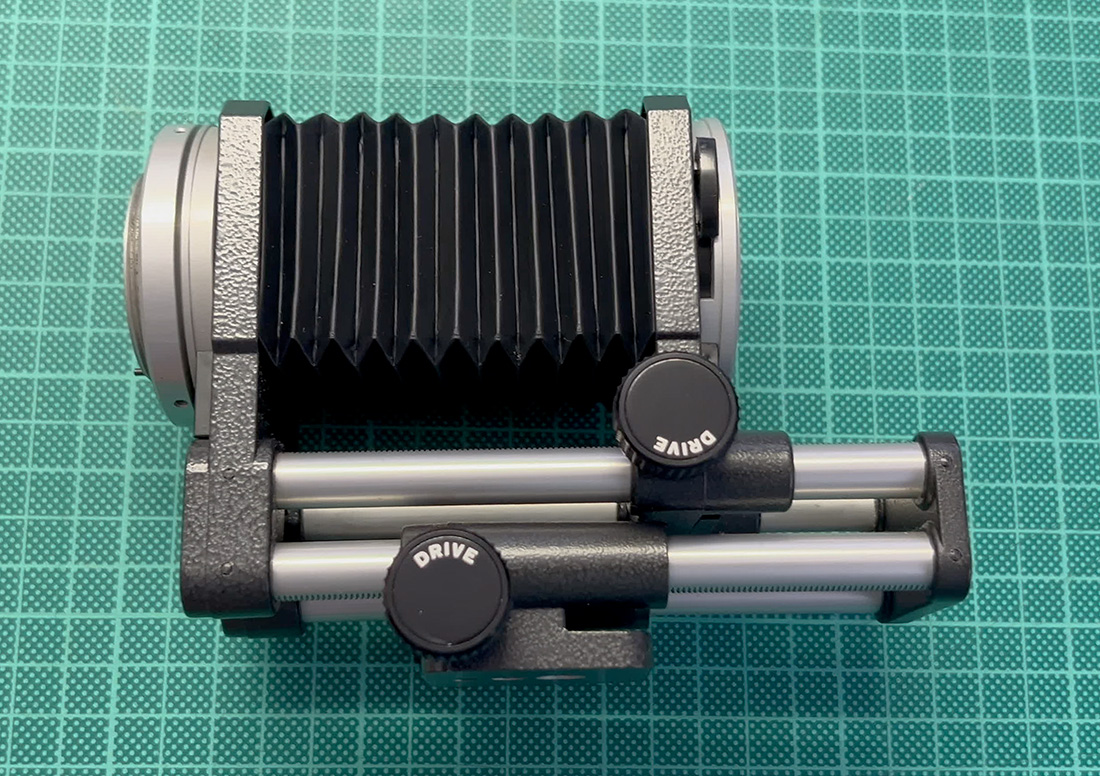
This one connects to M42 lenses, this is ideal for enlarger lenses, because you can get easily an adapter for M39 lenses as well.
The lens I used before to scan my negatives was the Canon EF 100MM F/2.8L Macro IS USM. This is a very sharp and great lens, I love it even for portraits on my Canon 5D MKIV. But it has its downsides for scanning negatives. The corners are always soft. The Rodenstock lens is made to project images on flat surfaces. Thats why it performs that well with negative scanning.

Film wise I waited to develop a roll that I used for reportage images that will be part of my inspired series book With that project I portray people with the wet collodion process who are inspiring. You can watch my video about it here
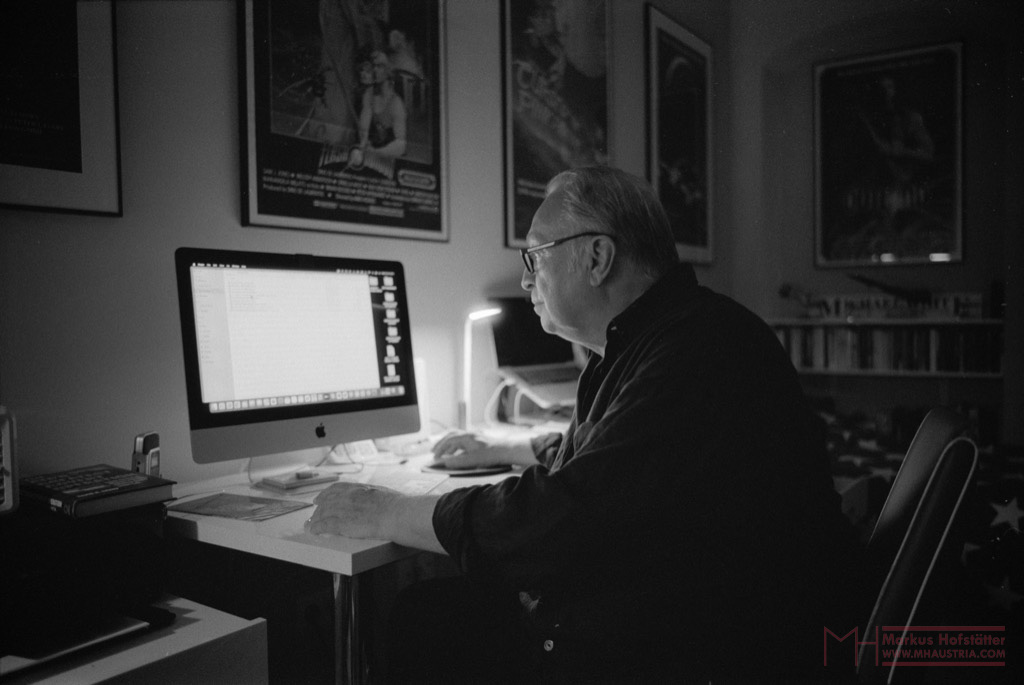
First I tested different stops to see what will be the best one for scanning negatives with my Leica M11. It’s kind of a Leica-inception, because I scan my Leica M2 negatives with my M11. Now let me show you, why I chose f/8 for that lens








The Rodenstock Rodagon 80mm F4 is a wonderful lens for scanning negatives, it’s cheap, sharp and small. But honestly, it all depends with what you want to do with your scanned negatives. If you just want to post on social media. Use the lens that you have and maybe buy some extension rings. Or spend about 100 Euros and get this great combination. I hop I could help some of you with that article. If you want to support my work, you can support me on patron http://patreon.mhaustria.com , buy me a tea https://buymeacoffee.com/mhaustria or just use this link https://paypal.me/mhaustria
Some more scans




Share this post:
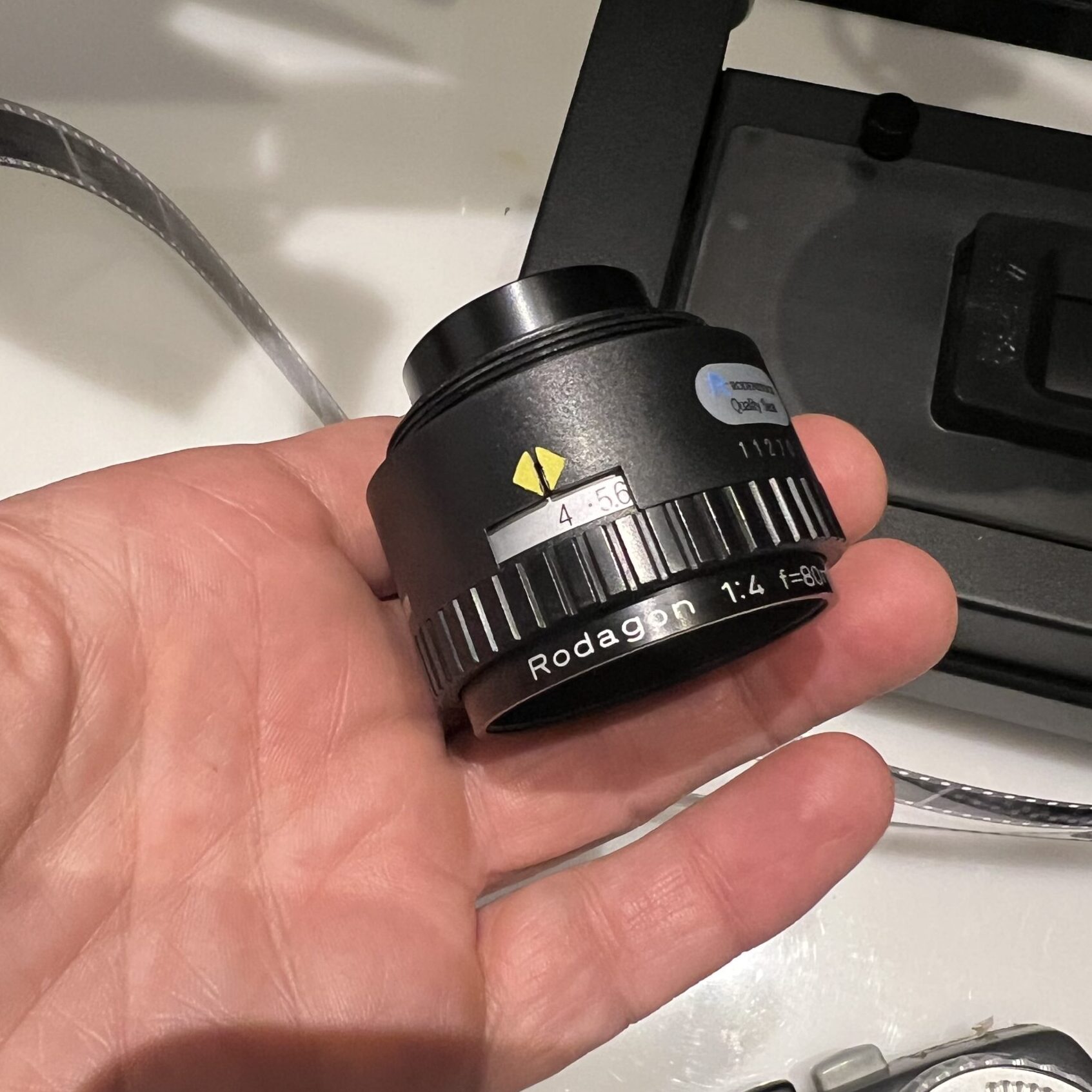
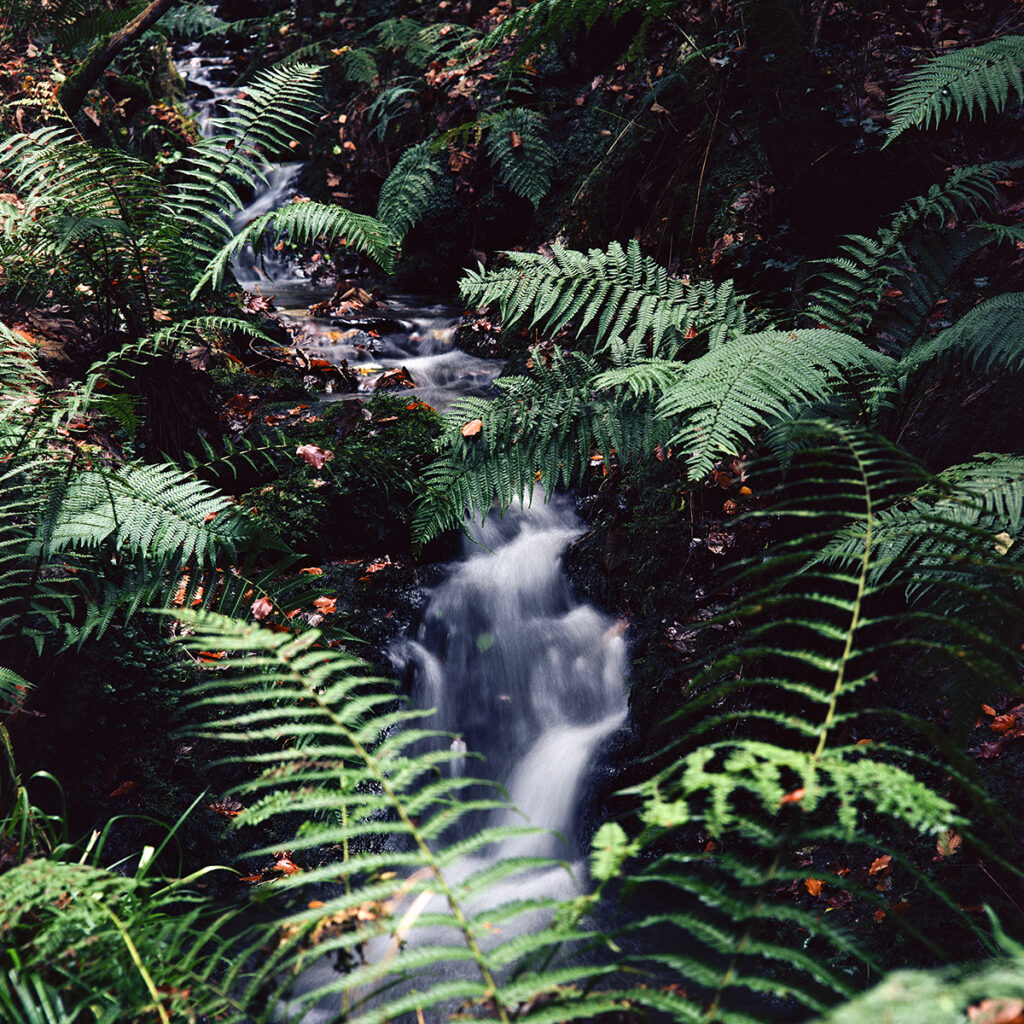
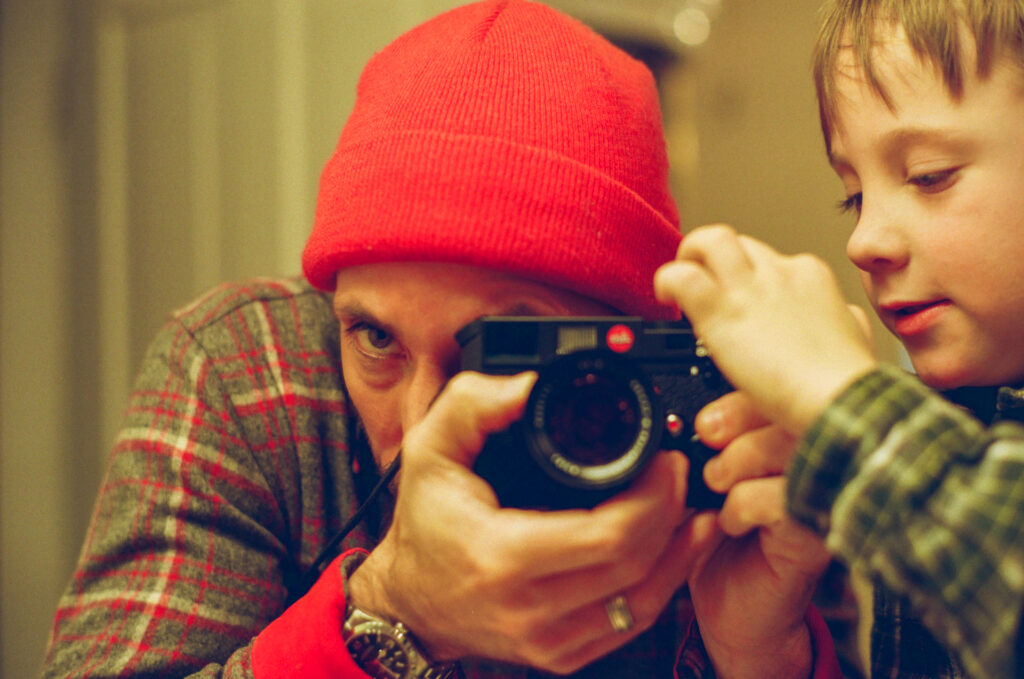
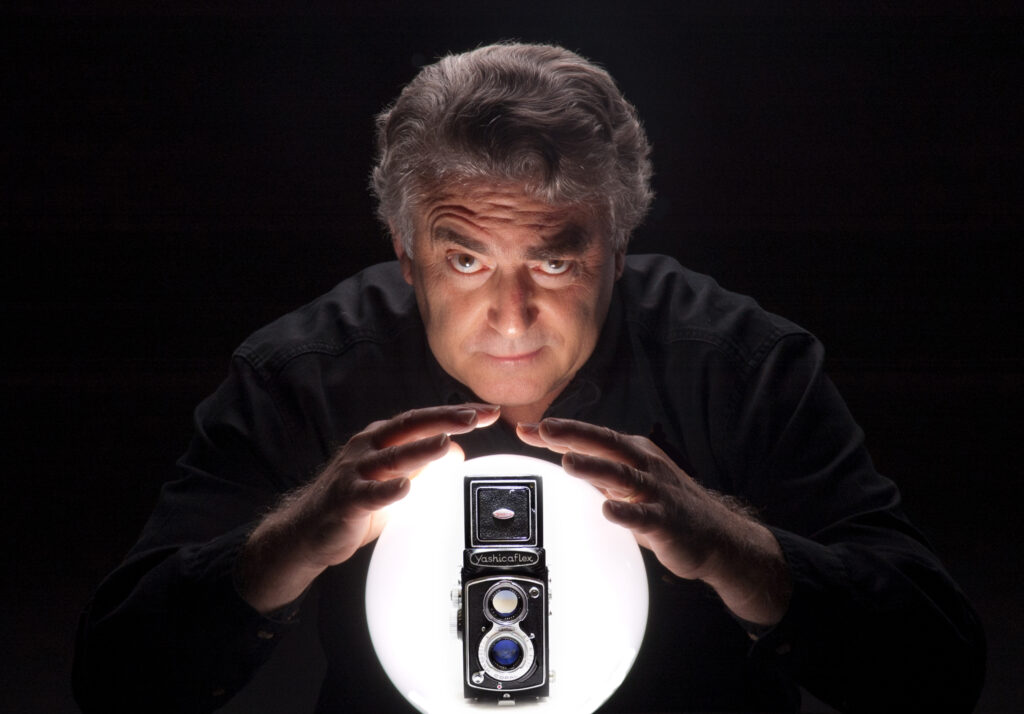





Comments
Martin on DSLR Scanning on a Budget: Unlock Stunning Results with an Affordable Enlarger Lens
Comment posted: 01/12/2024
Martin in Linz
Comment posted: 01/12/2024
Ralph Turner on DSLR Scanning on a Budget: Unlock Stunning Results with an Affordable Enlarger Lens
Comment posted: 01/12/2024
Alexander Seidler on DSLR Scanning on a Budget: Unlock Stunning Results with an Affordable Enlarger Lens
Comment posted: 02/12/2024
Did you know the list on this site?
https://www.pixl-latr.com/how-good-a-macro-lens-do-you-really-need-for-dslr-mirrorless-camera-scanning/
For 1:1 macro the sigma 70mm/2.8 art or the micro nikkor 60mm/2.8 will outperform your rodagon, what my own tests showed.
For 2:1 macro (medium format) i also use a 60mm/4 rodagon that performs great.
Jeffery Luhn on DSLR Scanning on a Budget: Unlock Stunning Results with an Affordable Enlarger Lens
Comment posted: 04/12/2024
What light source are you using for your scans?
Jeffery
Bill Brown on DSLR Scanning on a Budget: Unlock Stunning Results with an Affordable Enlarger Lens
Comment posted: 30/12/2024
Comment posted: 30/12/2024